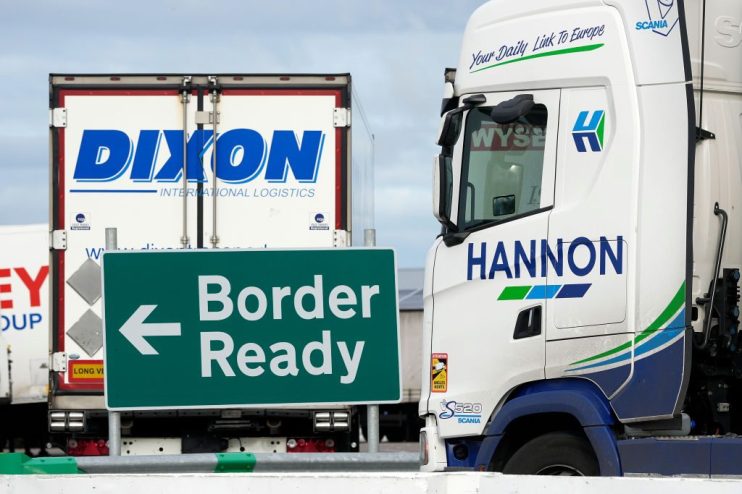Brexit checks: What’s actually changing at the border?

Fruit, vegetables, flowers, Meat, fish and even live animals. All these products coming from the European Union will now have to undergo fresh border checks when they get to the UK.
Dubbed the ‘Border Target Operating Model’ (BTOM), the government’s new customs arrangement came into effect from today.
This is to ensure customs duties – or tax – are correctly paid and to comply with health and safety, security and environmental regulations.
Baroness Lucy Neville-Rolfe, government minister in charge of borders, said the system would see “more efficient trading for businesses [and] protect against biosecurity threats”.
The changes are the most consequential for importers since the UK exited the EU single market on December 31, 2020. Here’s everything you need to know about the BTOM:
What does it mean?
The BTOM is the government’s new system for border control over the UK. Its aims, ministers say, are to introduce controls on EU goods, and simplify rules for non-EU goods.
From January, health certificates are now required for medium risk animal products, plants, and plant products, as well as high-risk food and feed of non-animal origin from the EU.
In April 2024, this will be expanded to full sanitary and phyto-sanitary (animal and plant) physical checks on EU imports.
Finally, in October this year, safety and security declarations must be made on medium- and high-risk imports. The government will also introduce the single trade window: a one-stop service for import and export paperwork, which it hopes will reduce the amount of forms.
When does it come into force?
It came into effect from midnight on Tuesday, January 30, marking the four-year anniversary of the UK exiting the EU, and is the start of the final pieces of the post-Brexit jigsaw puzzle.
It was delayed several times, including during the cost of living crisis and energy price shock.
The EU brought in full customs checks on goods arriving from the UK in January 2021, and the UK government has been gradually phasing in the reverse border controls since then.
Who will be affected?
These changes will affect anyone importing goods from the EU to the UK, which could include farmers and food producers, wholesalers, supermarkets and retail and hospitality.
Physical checks are expected to begin from April 2024, and will be at border control posts.
These are mostly existing facilities, although a new £147m facility has been built near Dover, in Kent, which is the UK’s busiest port. The facility is around 22 miles inland.
Some low-risk, shelf stable products, such as canned meat, will be exempt from health certification. No BTOM checks will apply to EU imports into Northern Ireland.
Why is it altering prices?
Food prices are expected to increase, as the changes will increase red tape.
Importers must pay for legally mandated veterinary certificates on the health of animal imports, or plant health documentation for plant products, which could be very expensive.
The government acknowledges this impact on food and drink in its BTOM document, but says it will “not be significant, representing less than a 0.2 per cent increase in total over three years”.
Delays, including waiting for vets to sign off or hold-ups in long queues at the border, could also increase costs, and lead to the risk of empty supermarket shelves.
Karin Goodburn, from the Chilled Food Association, said she has warned ministers of the risk, and told the BBC: “It could stop those supply chains, or at least press the pause button.”
